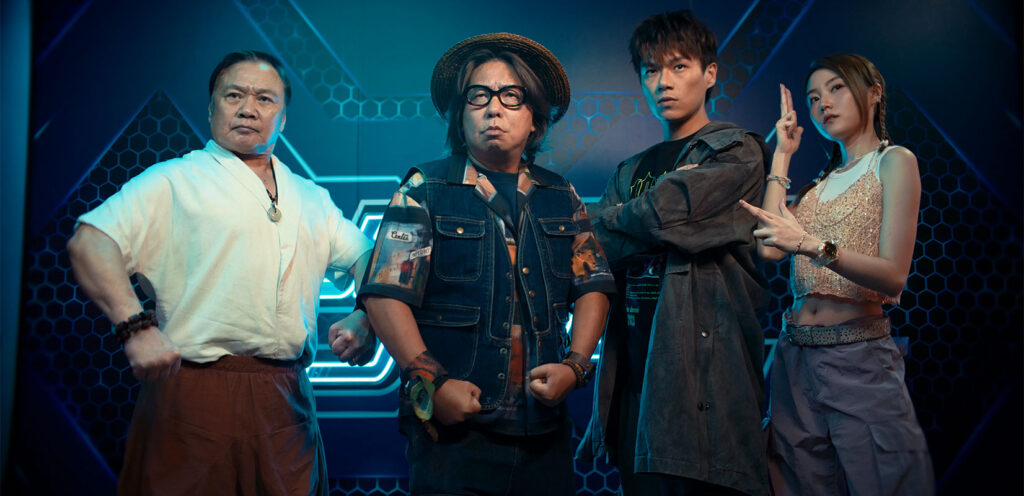Esports has rapidly grown from a niche hobby to a global phenomenon, with stadiums packed for tournaments and streamers turned household names. Good Game, the debut feature from director Dickson Leung, taps into this world with the rhythm and structure of a classic sports movie. Like Dodgeball: A True Underdog Story, it builds on the tried-and-true formula of misfits chasing glory—but this time, the battleground is digital, and the stakes are pixelated. Still, don’t let the mouse and keyboards fool you: this is every bit a sports film, complete with training montages, inspirational speeches, rivalries, and redemptions.
Yes, the story is predictable. You know where it’s going within the first fifteen minutes. But that’s not what Good Game is about. Its strength lies in the journey—not just of the team, but of the characters themselves as they learn to work together, face their pasts, and rise to the occasion.
At the heart of the team is Bond, also known by his gamer tag Solo, and he’s not exactly the most likable guy when we first meet him. He’s cocky, standoffish, and stuck in his own head. But as the film progresses and we watch him slowly earn the trust and respect of his teammates (and vice versa), he starts to grow on you—because he starts to grow, period. It’s a subtle but effective arc that anchors much of the film’s emotional core.
Good Game combines the excitement of esports with the charm of underdog sports movies in Dickson Leung’s heartfelt, action-packed feature.
The team itself is made up of a mix of bright-eyed newcomers and seasoned veterans. That generational clash is one of the movie’s most entertaining strengths. The banter between the young upstarts and the older talent leads to plenty of laughs. Still, there’s also a surprising amount of heart and sincerity woven throughout. That mix of hilarity and camaraderie keeps the tone light without ever feeling shallow.
One of the film’s more touching subplots centers on Golden Arm/Octo, a former actor who plays video games to support his wife, Lan, in her battle with dementia. Their quiet, supportive relationship adds a layer of warmth and real-world grounding to the otherwise high-energy story. It’s not a big part of the film, but it’s memorable and sweet.
Where Good Game truly sets itself apart is in its depiction of the esports action. Rather than rely solely on CG-characters and floating HUDs, Leung makes the bold (and wise) choice to shoot the in-game battles as stylized live-action sequences. Actors don costumes, weapons, and personas, throwing themselves into choreographed fights that blend martial arts, gunplay, fantasy, and video game flair. The result is fast-paced, eclectic, and surprisingly cinematic—especially given the film’s modest budget. It’s a clever workaround that turns what could’ve been a flat visual experience into something dynamic and fun.
Overall, Good Game doesn’t reinvent the genre, but it doesn’t have to. Like the best underdog stories, it gives us characters to root for, a world that’s easy to fall into, and just enough heart to make the wins feel earned. If you’re a fan of esports or just a sucker for sports comedies with soul, Good Game plays well.
Rating: 3.5/5 atoms








